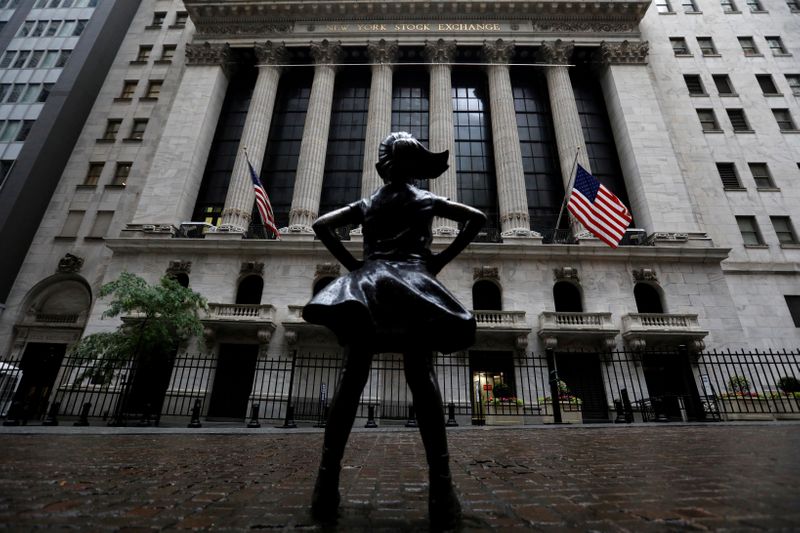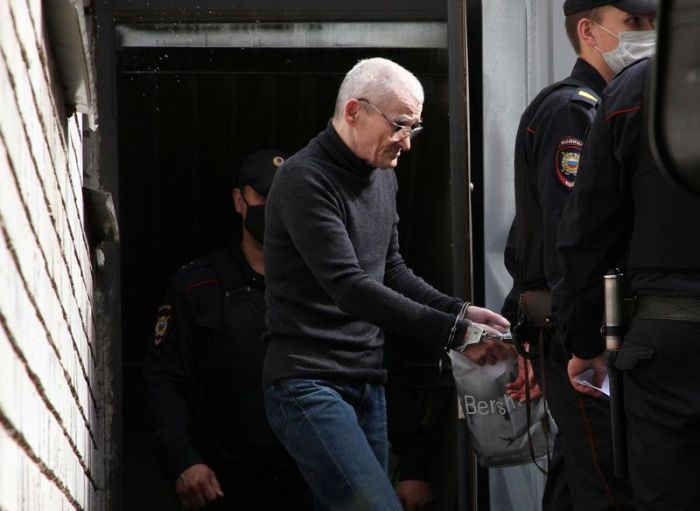NEW YORK/LONDON (Reuters) – Gold surged and world equity markets slid for most of Wednesday after the United States ordered China to close its consulate in Houston in a sign of worsening bilateral relations, while the euro gained on the European Union’s massive recovery fund.
Trading was choppy following the consolidation of recent equities gains in many bourses around the world. But the order for Beijing to shut its Houston consulate in three days spurred risk-off sentiment overseas and drove investors to assets offering relative safety, such as gold and silver.
MSCI’s benchmark for global equity markets <.MIWD00000PUS> was up 0.12% at the end of U.S. trading after the major indices on Wall Street closed higher. The euro <EUR=> hit $1.160, a 21-month high, a day after the EU approved a $750 billion euro ($857 billion) landmark stimulus package for the 27-nation bloc.
Silver jumped almost 8% <XAG=> to a six-year high of just over $23 an ounce before retreating slightly. The price of gold <XAU=> topped $1,870 an ounce and has doubled since financial markets’ frantic spiral downward in March. Spot prices are just $50 less than their all-time peak in September 2011.[GOL/]
Gold is seen as a hedge against inflation and the fear of currency debasement as governments and major central banks pump massive stimulus into the economy.
The stimulus begs the question of whether the U.S. Federal Reserve has limited or even eliminated investors’ needs to address market risk, said Yousef Abbasi, global market strategist at StoneX Group Inc.
“We face several different challenges and the tail risks are getting higher and higher,” Abbasi said, pointing to U.S.-China relations, the potential economic fallout from the coronavirus pandemic and uncertainty over the U.S. presidential election.
“Yet the (stock) market continues to climb higher. And it’s telling investors these risks don’t need to be addressed,” he said.
In equities markets, a boost from Microsoft <MSFT.O> shares and optimism over a new round of stimulus for the virus-stricken U.S. economy offset worries over worsening ties between the world’s two largest economies.
Europe’s broad FTSEurofirst 300 index <.FTEU3> closed down 0.94% on U.S.-China jitters, but on Wall Street the Dow Jones Industrial Average <.DJI> rose 0.62%, the S&P 500 <.SPX> gained 0.57% and the Nasdaq Composite <.IXIC> added 0.24%.
The dollar index <=USD>, which gauges the dollar against a basket of major world currencies, fell 0.20% to $94.9420.
China’s offshore yuan weakened past 7 per dollar on the Houston consulate news, and was last at 7.0128 <CNH=EBS>.
The State Department said the Chinese mission in Houston was closed “to protect American intellectual property and Americans’ private information.”
Republican Senator Marco Rubio, acting chairman of the Senate Intelligence Committee, described the Houston consulate on Twitter as the “central node of the Communist Party’s vast network of spies & influence operations in the United States.”
Beijing condemned the order and threatened retaliation.
“We urge the U.S. to immediately revoke this erroneous decision,” China’s Foreign Ministry said. A source told Reuters that China was considering closing the U.S. consulate in Wuhan.
U.S. President Donald Trump was due to hold a news conference at 5:30 p.m. (2130 GMT), the White House said.
In debt markets, Italy’s government bond market borrowing costs were at their lowest since March after approval of recovery fund. Rating agency S&P Global called the joint debt element of the deal a boost for the EU’s sovereign ratings.
“The story is not over yet, but the establishment of a shared fiscal mechanism is a breakthrough for EU sovereign creditworthiness,” one of S&P’s top sovereign analysts, Frank Gill, said.
Copper prices drooped 1.3% after the Houston headlines <CMCU3>. Shanghai <SCFcv1> and Dalian iron ore futures <DCIOcv1> rose for a second straight session on expectations of strong Chinese demand. [MET/L][IRONORE/]
Brent crude futures <LCOc1> slid 3 cents to settle at $44.29 a barrel. U.S. crude futures <CLc1> settled down 2 cents at $41.90 a barrel.
The 10-year U.S. Treasury <US10YT=RR> note fell 0.1 basis point to 0.597%, marking another day below 0.6%.
(Reporting by Herbert Lash; Editing by Leslie Adler and Jonathan Oatis)

























